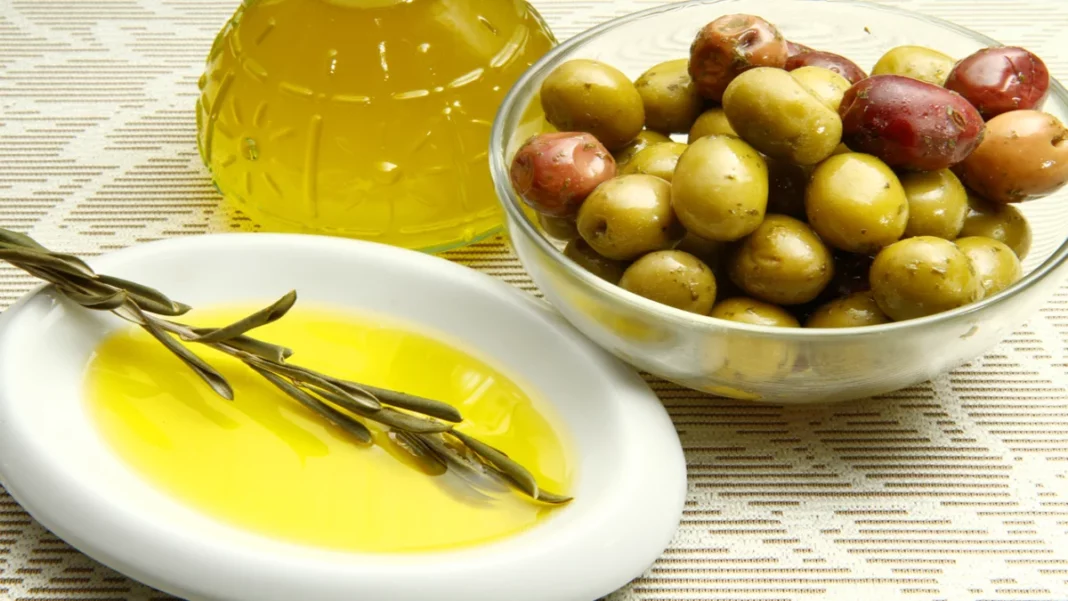Olives, a staple in Mediterranean cuisine, have been cultivated for thousands of years. They are known not only for their unique flavour but also for their numerous health benefits. This blog post will provide a detailed case study on the health benefits of olives, their nutritional facts, and potential side effects. Keep reading about wellhealthorganic.com:11-health-benefits-and-side-effects-of-olives-benefits-of-olives.
Health Benefits of Olives: wellhealthorganic.com:11-health-benefits-and-side-effects-of-olives-benefits-of-olives
a) Heart Health: Olives are a rich source of monounsaturated fats, which can help lower bad cholesterol (LDL) levels and reduce the risk of heart disease. The oleic acid in olives also has anti-inflammatory properties that can contribute to better cardiovascular health.
b) Antioxidant Properties: Olives contain various antioxidants, including vitamin E and polyphenols, which can protect the body from free radicals, reducing oxidative stress and the risk of chronic diseases.
c) Cancer Prevention: The phenolic compounds present in olives have been found to inhibit the growth of cancer cells and promote apoptosis (cell death) in various types of cancers, such as breast, colon, and prostate cancer.
d) Weight Management: Olives are a low-calorie food with healthy fats that can contribute to satiety, preventing overeating and aiding in weight management.
e) Bone Health: Olives contain essential nutrients like calcium, phosphorus, and vitamin K, which can help maintain bone health and reduce the risk of osteoporosis.
Nutrition Facts
A serving of 10 medium-sized olives (approximately 34g) contains:
- Calories: 60
- Fat: 5.5g (of which 3.8g are monounsaturated fats)
- Sodium: 310mg
- Carbohydrates: 2.5g (of which 1g is dietary fibre)
- Protein: 0.5g
- Vitamin E: 10% of the daily value
- Vitamin A: 4% of the daily value
- Calcium: 2% of the daily value
Side Effects: wellhealthorganic.com:11-health-benefits-and-side-effects-of-olives-benefits-of-olives
a) High Sodium Content: Olives are often preserved in brine, which can contain high sodium levels. Consuming too much sodium may lead to high blood pressure, heart disease, and stroke. Opt for low-sodium varieties or rinse olives before consuming them to reduce the sodium content.
b) Allergy: Although rare, some people may have an allergy to olives or olive pollen, resulting in symptoms like itching, hives, or swelling of the mouth or throat. Get further information about wellhealthorganic.com:11-health-benefits-and-side-effects-of-olives-benefits-of-olives.
c) Drug Interaction: Oleuropein, a compound found in olives, may interact with certain medications, such as blood thinners or antihypertensive drugs. Consult a healthcare professional if you are taking any medications.
Potential Health Risks and Side Effects Associated with the Consumption of Olives
Health risk associated with: wellhealthorganic.com:11-health-benefits-and-side-effects-of-olives-benefits-of-olives
1. High Sodium Content
Olives are often preserved in brine, which can contain high sodium levels. Consuming too much sodium may lead to high blood pressure, heart disease, and stroke. To reduce the sodium content in olives, you can opt for low-sodium varieties or rinse them before consuming.
2. Allergy
Although rare, some people may have an allergy to olives or olive pollen. In such cases, consuming olives might result in symptoms like itching, hives, or mouth or throat swelling. If you suspect you have an olive allergy, consult a healthcare professional for advice and avoid consuming olives or products containing olives.
3. Drug Interaction
Oleuropein, a compound found in olives, may interact with certain medications, such as blood thinners or antihypertensive drugs. If you are taking any medications, consult a healthcare professional before incorporating olives into your diet to ensure there are no potential drug interactions.
4. Gastrointestinal Issues
In some cases, consuming a large number of olives may cause gastrointestinal issues, such as bloating, gas, or diarrhea, due to their fiber content. To avoid these issues, it’s best to consume olives in moderation and increase your intake gradually if you’re not used to consuming a high-fiber diet.
Conclusion
Olives offer numerous health benefits, such as promoting heart health, providing antioxidants, and preventing cancer. They are nutritious food packed with essential nutrients and healthy fats. However, it is essential to be mindful of their sodium content and potential side effects. Including olives in a balanced diet can contribute to overall health and well-being. Olives have several health benefits, but it’s essential to be mindful of potential risks and side effects. Consume olives in moderation, and if you have any concerns or specific health conditions, consult a healthcare professional for personalized advice. You must know about wellhealthorganic.com:11-health-benefits-and-side-effects-of-olives-benefits-of-olives.
Also Read: Introducing the Journey of Anveya – Safe Skin & Haircare for Everyone




